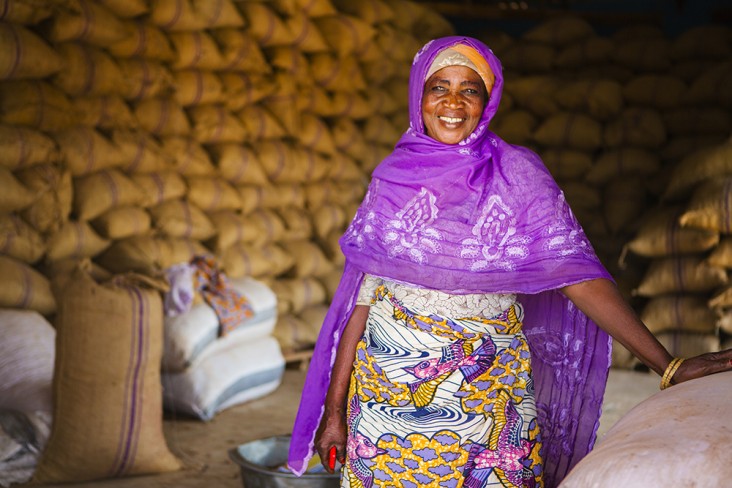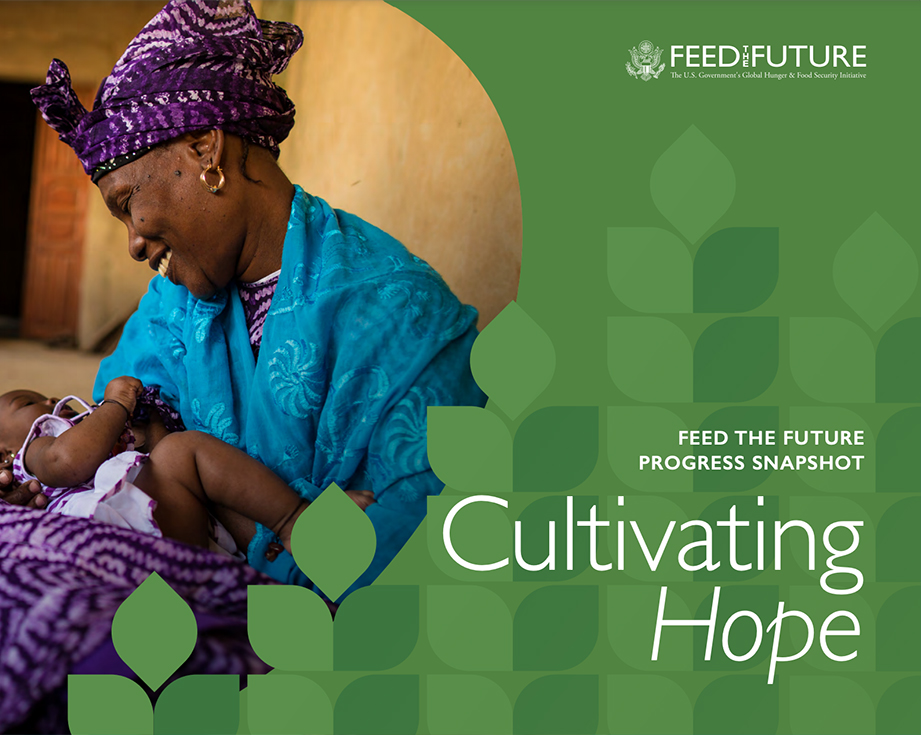- What We Do
- Agriculture and Food Security
- Democracy, Human Rights and Governance
- Economic Growth and Trade
- Education
- Environment and Global Climate Change
- Gender Equality and Women's Empowerment
- Global Health
- Humanitarian Assistance
- Transformation at USAID
- Water and Sanitation
- Working in Crises and Conflict
- U.S. Global Development Lab
Speeches Shim

Why Food Security Matters
Today, more than 800 million people across the world still go to bed hungry each night, stunting the growth of both children and economies.
Ending global hunger is one the greatest challenges and opportunities of our time, and agriculture is at the heart of the solution. Growth in agriculture has been shown to be at least twice as effective at reducing poverty as growth in other sectors.
Fighting the root causes of hunger, poverty and malnutrition is also a boon to U.S. security and prosperity. History has shown that poverty and hunger push people into despair and, in turn, exacerbate many of today’s national security challenges. We know that threats to crops do not respect borders, and investing in agricultural research today prepares us to adapt to future challenges and remain resilient amid evolving threats, which also advances U.S. prosperity and security.
Effective food security investments that expand and protect economic opportunities help create a more stable and prosperous world.
What We Do
Feed the Future is America’s initiative to combat global hunger. Led by USAID, the initiative brings partners together to address the root causes of hunger and poverty by boosting agriculture-led growth, resilience and nutrition in countries with great need and opportunity for improvement.
Created in the wake of the devastating 2007 and 2008 food price spikes, Feed the Future has since helped millions of people in vulnerable communities around the world reduce hunger and malnutrition, increase their incomes through agriculture, and create economic opportunities both on and off the farm.
Feed the Future helps partner countries accomplish the following:
- Improve agricultural production and markets and create new opportunities.
- Strengthen the resilience of communities to shocks.
- Reduce hunger and improve nutrition, especially among mothers and children.
- Increase the exchange of ideas, technologies and products that benefit citizens at home and communities abroad.
Learn more about Feed the Future at feedthefuture.gov.
Who We Work With
Tackling global hunger requires an “all hands on deck” approach. Feed the Future represents a broad partnership that draws on the expertise, resources, talents and dedication of numerous organizations, companies and individuals to tackle global hunger.
- U.S. Government
- Businesses
- Partner Governments
- Researchers and Universities
- Nonprofits and NGOs
- Everyday Americans (including Farmer-to-Farmer Volunteers)
Learn more about these partners and how you can get involved by visiting the Feed the Future website. Check out our U.S. partners in these maps.
Where We Work
Feed the Future invests in a select set of countries that are committed to improving their own food security and nutrition. Target countries include:
- Bangladesh
- Ethiopia
- Ghana
- Guatemala
- Honduras
- Kenya
- Mali
- Nepal
- Niger
- Nigeria
- Senegal
- Uganda
Feed the Future also coordinates activities and support across a set of aligned countries and at the regional level in Asia, Latin America and the Caribbean, the Middle East, and East, Southern and West Africa to improve food security, resilience and nutrition.
Explore each country’s strategy and results on the Feed the Future website.





Comment
Make a general inquiry or suggest an improvement.